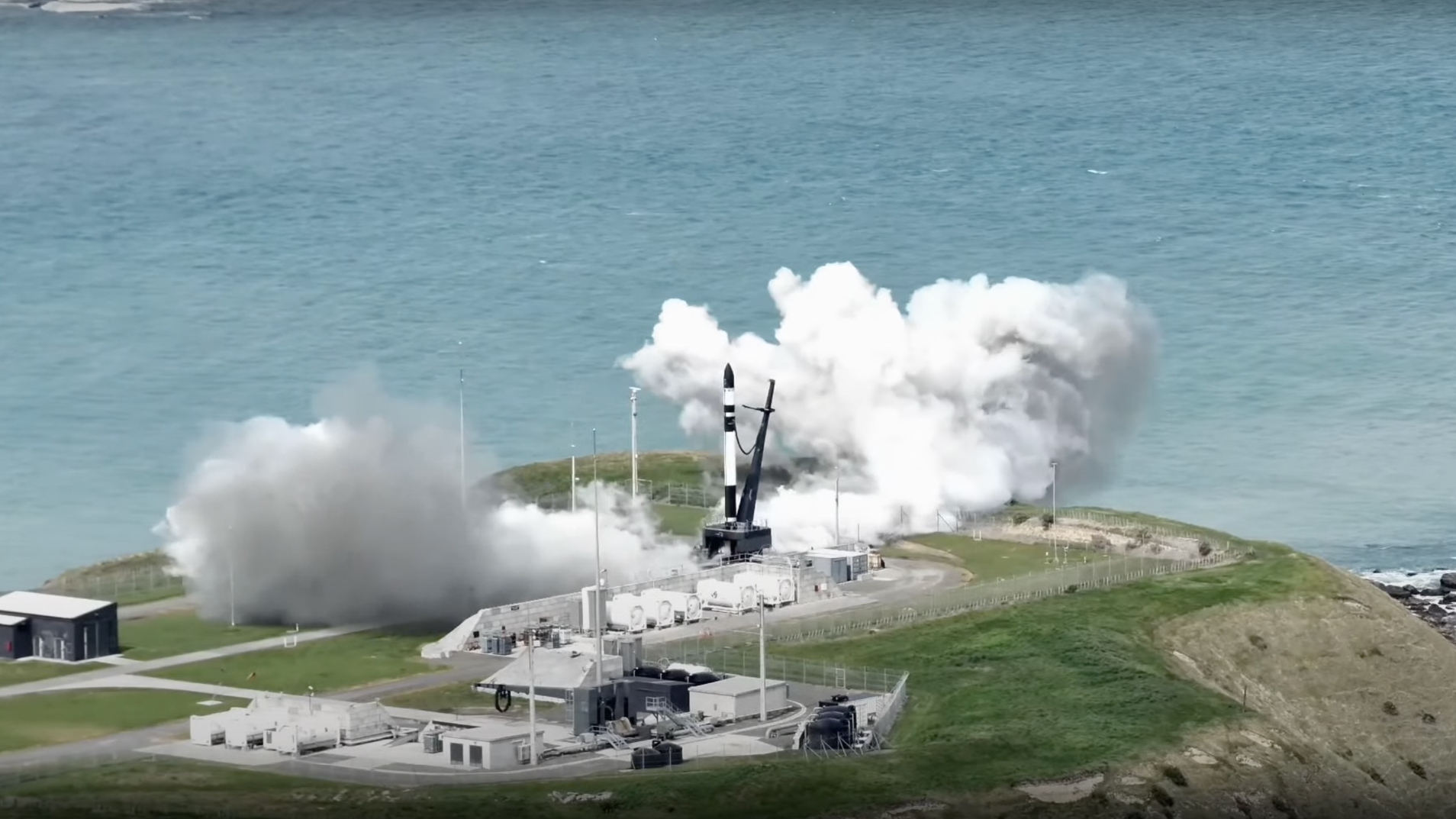Rocket Lab aborted a launch at the last second today (Sept. 18).
The company's Electron rocket was scheduled to launch five "Internet of Things" satellites for the French company Kinéis today at 7 p.m. EDT (2300 GMT) from New Zealand.
The countdown clock reached zero, and Electron appeared to fire up its first-stage engines. But they immediately shut down, resulting in an abort.

"Since today's mission required an instantaneous launch, we'll be standing down from further launch attempts today. The team is assessing opportunities for the next launch attempt and we'll share more information here shortly," Rocket Lab wrote in an update on X shortly after the abort.
The launch window extends for 14 days, Rocket Lab has previously said.
Related: Rocket Lab launches 5 IoT satellites on landmark 50th mission (video)
Rocket Lab calls this mission "Kinéis Killed the RadIOT Star." It will be the company's second launch for Kinéis, after a five-satellite liftoff on June 20.
Get the Space.com Newsletter
Breaking space news, the latest updates on rocket launches, skywatching events and more!
Kinéis plans to loft a total of 25 satellites using Rocket Lab's Electron, a small-satellite launcher that stands 59 feet (18 meters) tall. Rocket Lab has 52 orbital missions under its belt to date, including 10 in 2024.
Join our Space Forums to keep talking space on the latest missions, night sky and more! And if you have a news tip, correction or comment, let us know at: community@space.com.

Michael Wall is a Senior Space Writer with Space.com and joined the team in 2010. He primarily covers exoplanets, spaceflight and military space, but has been known to dabble in the space art beat. His book about the search for alien life, "Out There," was published on Nov. 13, 2018. Before becoming a science writer, Michael worked as a herpetologist and wildlife biologist. He has a Ph.D. in evolutionary biology from the University of Sydney, Australia, a bachelor's degree from the University of Arizona, and a graduate certificate in science writing from the University of California, Santa Cruz. To find out what his latest project is, you can follow Michael on Twitter.









